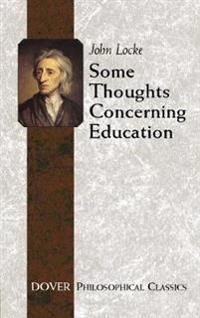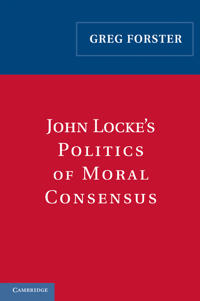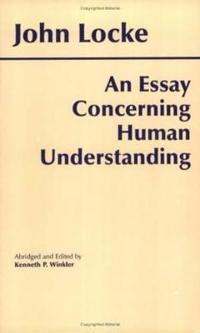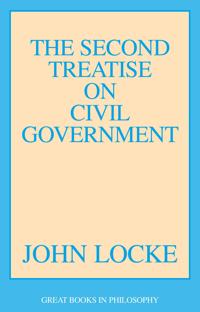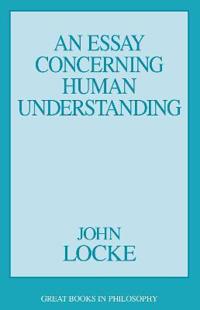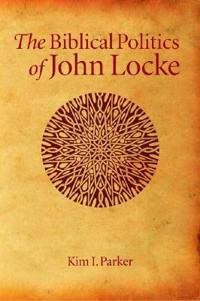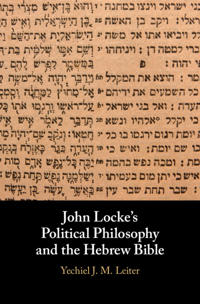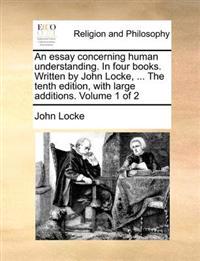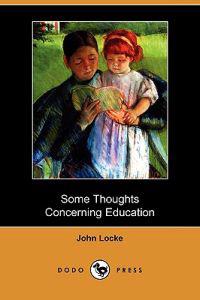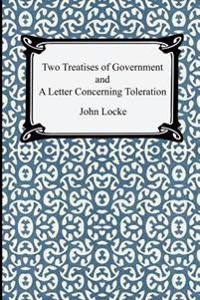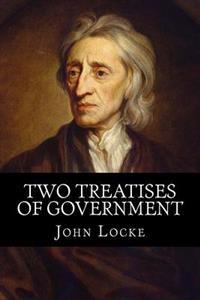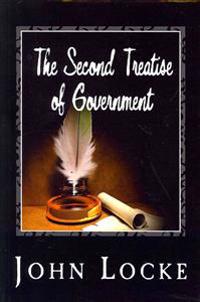John Locke's Politics of Moral Consensus
ISBN: 9780521181181 - UTGIVEN: 2010-10The aim of this book is twofold: to explain the reconciliation of religion and politics in the work of John Locke, and to explore the relevance of that reconciliation for politics in our own time. Confronted with deep social divisions over ultimate beliefs, Locke sought to unite society in a single [...]
Essay Concerning Human Understanding (Häftad)
avJohn Locke
ISBN: 9780872202160 - UTGIVEN: 199611Part of a two-volume set of work containing words of all four books comprising the "Essay", this book provides marginal analyses of almost every paragraph, and explanatory footnotes which comment, elaborate and explain difficult points.[...]
The Second Treatise on Civil Government (Häftad)
avJohn Locke
ISBN: 9780879753375 - UTGIVEN: 198604As one of the early Enlightenment philosophers in England, John Locke sought to bring reason and critical intelligence to the discussion of the origins of civil society. Endeavouring to reconstruct the nature and purpose of government, a social contract theory is proposed. "The Second Treatise" sets[...]
An Essay Concerning Human Understanding (Pocket)
avJohn Locke
ISBN: 9780879759179 - UTGIVEN: 1994-12What is known? And how do we come to know it? These are the primary points of focus for metaphysics and epistemology, respectively. Here, in one of the classic works of early-modern empiricist philosophy, John Locke (1632-1704) attempts to answer these basic human questions by moving away from the r[...]
The Biblical Politics of John Locke
ISBN: 9780889204508 - UTGIVEN: 2004-04John Locke is often thought of as one of the founders of the Enlightenment, a movement that sought to do away with the Bible and religion and replace them with scientific realism. But Locke was extremely interested in the Bible, and he was engaged by biblical theology and religion throughout his lif[...]
Second Treatise of Government (Häftad)
avJohn Locke
ISBN: 9780915144860 - UTGIVEN: 1980-01Features the central principles of what is broadly known as political liberalism.
John Locke's Political Philosophy and the Hebrew Bible
ISBN: 9781108428187 - UTGIVEN: 2018-06John Locke's treatises on government make frequent reference to the Hebrew Bible, while references to the New Testament are almost completely absent. To date, scholarship has not addressed this surprising characteristic of the treatises. In this book, Yechiel Leiter offers a Hebraic reading of Locke[...]
An Essay Concerning Human Understanding. in Four Books. Written by John Locke, ... the Fifteenth Edition. Volume 2 of 2 (Häftad)
ISBN: 9781140859611 - UTGIVEN: 2010-05An Essay Concerning Human Understanding. in Four Books. Written by John Locke, ... the Eighth Edition, with Large Additions. Volume 1 of 2 (Häftad)
ISBN: 9781170555415 - UTGIVEN: 2010-05An Essay Concerning Human Understanding. in Four Books. Written by John Locke, ... the Tenth Edition, with Large Additions. Volume 1 of 2 (häftad)
ISBN: 9781170559437 - UTGIVEN: 2010-05Two Treatises of Government and A Letter Concerning Toleration (Häftad)
avJohn Locke
ISBN: 9781420924930 - UTGIVEN: 200501John Locke's "Two Treatises of Government" are considered to be some of the most important works of western philosophy ever written. In the first treatise Locke disputes the divine right of monarchial rule principle that is put forth in the book "Patriarcha" by Sir Robert Filmer. In the second treat[...]
John Locke (Häftad)
ISBN: 9781441123220 - UTGIVEN: 2013-03John Locke (1632-1704), one of the great philosophers, is probably best known for his contributions to political thought. In this outstanding volume, Eric Mack explains Locke's philosophical position, placing it in the tumultuous political and religious context of 17th century England. For Locke, en[...]
Second Treatise of Government (Häftad)
avJohn Locke
ISBN: 9781603864107 - UTGIVEN: 2011-03An unabridged edition of Second Treatise of Government (An Essay Concerning the True Original Extent and End of Civil Government) with the original nineteen chapters and 243 sections with footnotes and preface by the author[...]

